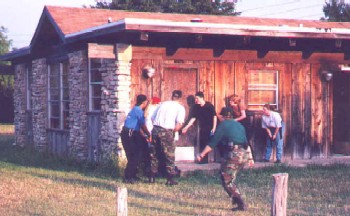The US Supreme Court ruled last month that police officers who violated "knock and announce" search warrant rules could use the ill-gotten evidence against defendants, but that's not good enough for at least one Vermont judge. In a Monday opinion, District Court Judge Robert Bent threw out the evidence in a "knock and announce" search where police rushed the home as soon as the door opened while they were gathering out front.

Vermont should hold itself to a higher standard, said Bent in the case of Ellen Sheltra, who was arrested on marijuana charges after the cops rushed her door. "Evidence obtained in violation of the Vermont Constitution, or as the result of a violation, cannot be admitted at trial as a matter of state law," Bent wrote, citing an earlier state case as precedent. "Introduction of such evidence at trial eviscerates our most sacred rights, impinges on individual privacy, perverts our judicial process, distorts any notion of fairness and encourages official misconduct."
In their dissent in the US Supreme Court case, four justices warned that allowing police to use illegally obtained evidence would lead to police officers ignoring the law. Bent agreed. "The exclusionary remedy should remain in full force and effect," Bent wrote, "at least in our small corner of the nation."
The district court decision is not binding on other judges, but they are likely to take it into consideration in deciding similar cases. Prosecutors have not decided whether to appeal Bent's ruling to the Vermont Supreme Court, where, if it is upheld, it would become binding.
This work by StoptheDrugWar.org is licensed under Creative Commons Attribution-ShareAlike 4.0 International
Add new comment